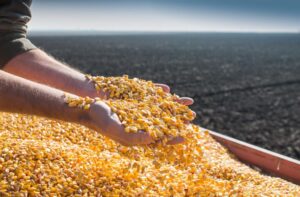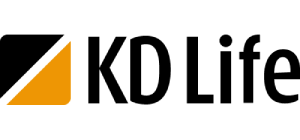
Ukraine will play its third and final group stage match at the 2024 UEFA European Football Championship against Belgium on Wednesday.
The match will start at 19:00 Kyiv time at the stadium in Stuttgart, and will be officiated by a refereeing team from England led by Anthony Taylor.
According to the Ukrainian Football Association (UAF), the starting lineup will include: Anatoliy Trubin, Vitaliy Mykolenko, Oleksandr Tymchyk, Mykola Matvienko, Oleksandr Svatok, Ilya Zabarny, Volodymyr Brazhko, Mykola Shaparenko, Hryhoriy Sudakov, Artem Dovbyk. Roman Yaremchuk.
As reported, Ukraine lost the first match to Romania with a score of 0:3, and in the second match it beat Slovakia with a score of 2:1.
In Group E, all four teams have three points before the last round and have a chance to reach the playoffs.

Astarta Agro Holding has started the harvesting campaign, during which it plans to harvest early grain crops from an area of 61 thousand hectares, including winter wheat from 49 thousand hectares, the company’s press service reported on Facebook.
“Today we started threshing rapeseed. The work started in Poltava region. It is an ultra-early date – ahead of the average long-term calendar indicators – but the harvesting dates are predictable. We also plan to start harvesting wheat at the end of this week. Companies in the western region plan to start harvesting no earlier than July 7-9. Currently, we see the biggest challenges in ensuring the continuity of all harvesting stages in the context of simultaneous harvesting of several crops due to constant air raids and power outages,” said Roman Pavlyk, Head of Crop Production at the agricultural holding.
The agroholding’s farmers have also completed harvesting winter peas from an area of 599 hectares. This is a new crop for Astarta with ultra-early harvesting dates.
“Astarta is a vertically integrated agro-industrial holding operating in eight regions of Ukraine. It comprises six sugar factories, agricultural enterprises with a land bank of 220 thousand hectares and dairy farms with 22 thousand cattle, an oil extraction plant in Globyno (Poltava region), seven elevators and a biogas complex.
In 2023, the agricultural holding reduced its net profit by 5.0% to EUR 61.9 million, and its EBITDA decreased by 6.1% to EUR 145.77 million, while revenue increased by 21.3% to EUR 618.93 million.
In the first quarter of 2024, Astarta reduced its net profit by 44.1% year-on-year to EUR9.02 million, while its consolidated revenue increased by 1.4% to EUR165.78 million.

In January-May 2024, the WOG filling station network transferred UAH 5.82 billion to the budgets of all levels.
According to the company’s press service, UAH 797.25 million were taxes on operating activities and UAH 5.023 billion were import taxes.
Personnel taxes for the first five months of 2024 amounted to over UAH 290.4 million, up 61% compared to the same period in 2023. This amount includes the unified social contribution (USC), personal income tax (PIT) and the fee.
The WOG filling station network is one of the largest in Ukraine, with about 400 locations.
West Petroleum Market LLC (manages the WOG filling station chain) was founded in 2018, with the ultimate beneficiaries being Serhiy Lagur and Svitlana Ivakhiv. In 2023, the company generated UAH 27.69 billion in revenue, which is 17.8% less than in 2022. Net profit more than halved to UAH 265 million 890 thousand in 2023 from UAH 560 million 515 thousand in 2022.

As of June 22, Ukraine exported 2.2 million tons of corn, indicating a high level of activity in the market, according to the analytical cooperative “Start”, created within the framework of the All-Ukrainian Agrarian Council (AAC).
Analysts predict that June will be the most productive month for exports, but in July-August, the figures may decline significantly as the market switches to a new harvest.
“The global situation was unfavorable for Ukrainian corn. Although it is still in demand on the Italian market, its competitiveness is decreasing due to the pricing policy. For example, Argentine corn is sold at $212-213/ton on the Italian market, which is about the same level as Ukrainian corn. At the same time, Argentine corn is several dollars cheaper in Spain, making it more attractive to buyers. Under such conditions, Ukrainian traders are not in a hurry to sell their existing stocks, as their volume is limited,” the experts said.
According to their information, the corn market is entering the off-season, and prices are expected to stabilize in the coming weeks.
“If there is demand, the conditional prices for corn may fluctuate within $172-174 per ton. On average, on the CPT basis, the price will be around $170/ton in the coming weeks,” Pusk summarized.

Insurance company “KD Life” (Kyiv) plans to increase its authorized capital by UAH 7.267 million, up to UAH 60.569 million (+13.6%), without exercising the preemptive right of shareholders.
According to the information system of the National Securities and Stock Market Commission (NSSMC), it is planned to issue 4,910 thousand shares with a par value of UAH 1,480 thousand, with a selling price of UAH 1.5 thousand.
It is noted that the proceeds from the additional issue will be used to replenish insurance reserves to ensure compliance with the capital adequacy ratio and the company’s solvency. Financial resources will be placed in government bonds and bank deposits – 70% and 30%, respectively.
The report also notes that at the time of the decision, the company’s main shareholder is Volodymyr Polishchuk, who owns 95.99% of the insurer’s shares.
The shares will be sold from August 15 to September 10, 2024.
As reported, KD Life was founded in 2007.
Last year, the company collected UAH 57.6 million in insurance premiums, which is 7.3% more than in 2022. To ensure solvency under the concluded voluntary life insurance contracts, as of December 31, 2023, the company formed insurance reserves in the amount of UAH 428.0 million, which is 21.8% more than a year earlier.
The company’s assets increased by 21.3% to UAH 511.6 million, exceeding insurance reserves by 19.5%, or UAH 83.6 million. The actual solvency margin, calculated according to national standards, exceeds the regulatory solvency margin by 315%.
Investment income received from the placement of life insurance reserves amounted to UAH 34.5 million, which is 6.8% more than a year ago at the same date.
In 2023, the company paid UAH 9.7 million in claims for 244 insured events, which is 37.7% more than in 2022.
External financing of the state budget as of June 14, 2023, USD bln

Source: Open4Business.com.ua and experts.news